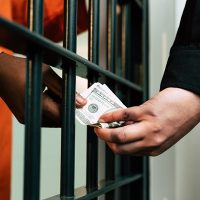Prosecutors Behaving Badly

You have probably heard terrible stories on the news about prosecutors bribing inmates serving life sentences with promises of parole in exchange for falsely testifying against defendants who, if convicted, could suffer an even worse fate. Prosecutorial misconduct is not always this egregious, and it can happen in legal matters where there is less at stake than in a capital murder case. In other words, prosecutors do not have to be supervillains to violate your rights. In many cases judges notice instances of prosecutors overstepping their bounds even before the defense team finds out about it. Of course, other times, judges have no problem with prosecutors acting as if the rules don’t apply to them, and the misconduct goes on until defense lawyers speak up. To ensure that the state respects your rights in your criminal case, contact a Tampa criminal defense lawyer.
What Is Prosecutorial Misconduct, and What Does It Have to Do With Your Criminal Case?
The law affords many rights to people accused of crimes in the United States. These include the right not to be coerced to confess or incriminate yourself, the right to a trial with unbiased jurors deciding the outcome, and the right to have a lawyer represent you before and during your trial. If the state violates these or any of the other rights of defendants in criminal cases, it is prosecutorial misconduct. The remedy for prosecutorial misconduct is to discard the part of the case spoiled by prosecutors, such as by suppressing an illegal piece of evidence or dismissing the jury and ordering a new trial; in some cases, it can lead to the court entirely dismissing the charges against you.
Prosecutorial misconduct can take many different forms. For example, prosecutors might present a piece of inadmissible evidence at trial, such as illegal drugs that police confiscated from a house that they did not have a warrant to search. The law also requires prosecutors to disclose any information or evidence they have that might help the defendant’s case; if they do not, it is prosecutorial misconduct. For example, if the state calls on a police officer who was present at the arrest to testify, and that officer has a documented history of making false statements in police reports, prosecutors must disclose this fact to the defense team during pretrial discovery.
Likewise, some arguments are off limits for prosecutors to make during the trial. For example, they may not invoke religion, such as by talking about a person who died an untimely death going to Heaven or describing a defendant’s alleged actions as sinful. They also may not vouch for the credibility of witnesses; it is up to the jury to decide whether the witnesses are credible. The rule about witness credibility is “show, don’t tell.”
Contact Tampa Criminal Defense Attorney Bryant Scriven
A criminal defense lawyer can help you exercise your rights at every stage of the process if you are facing criminal charges. Contact Scriven Law in Tampa, Florida to schedule a consultation.
Source:
davisvanguard.org/2024/06/nations-defense-bar-initiates-action-to-combat-prosecutorial-misconduct-in-florida/

